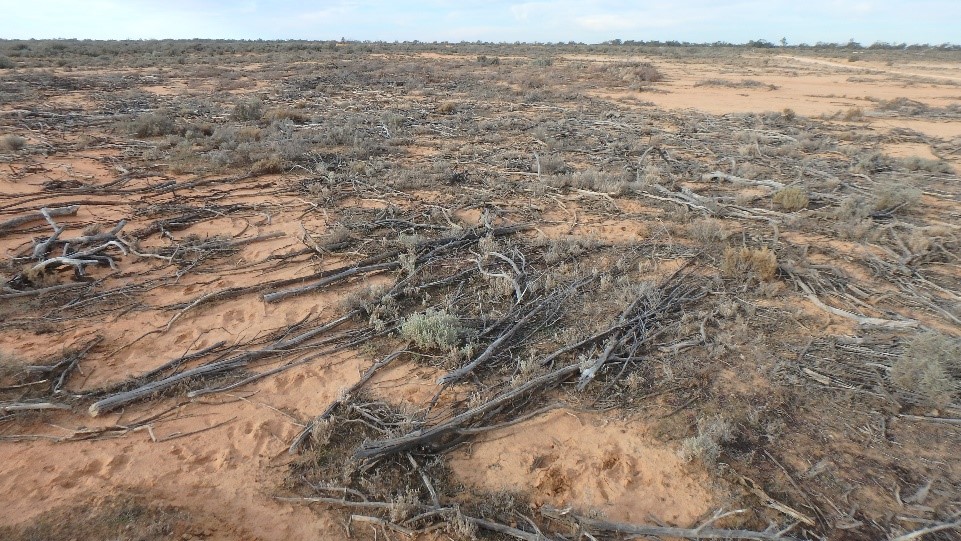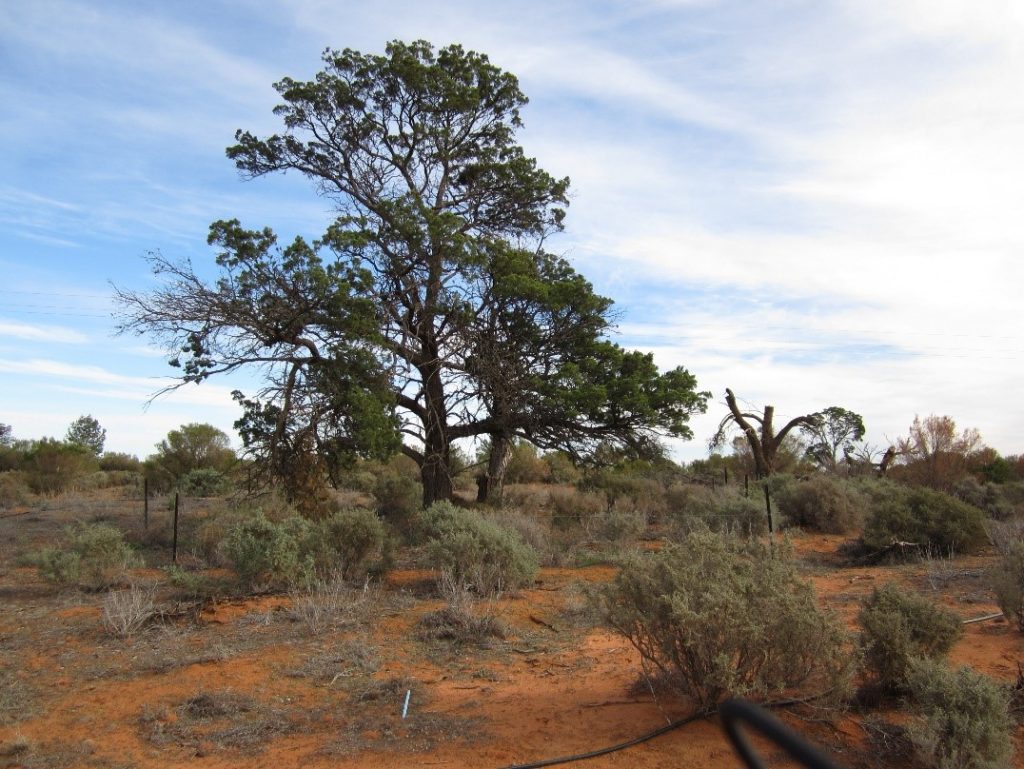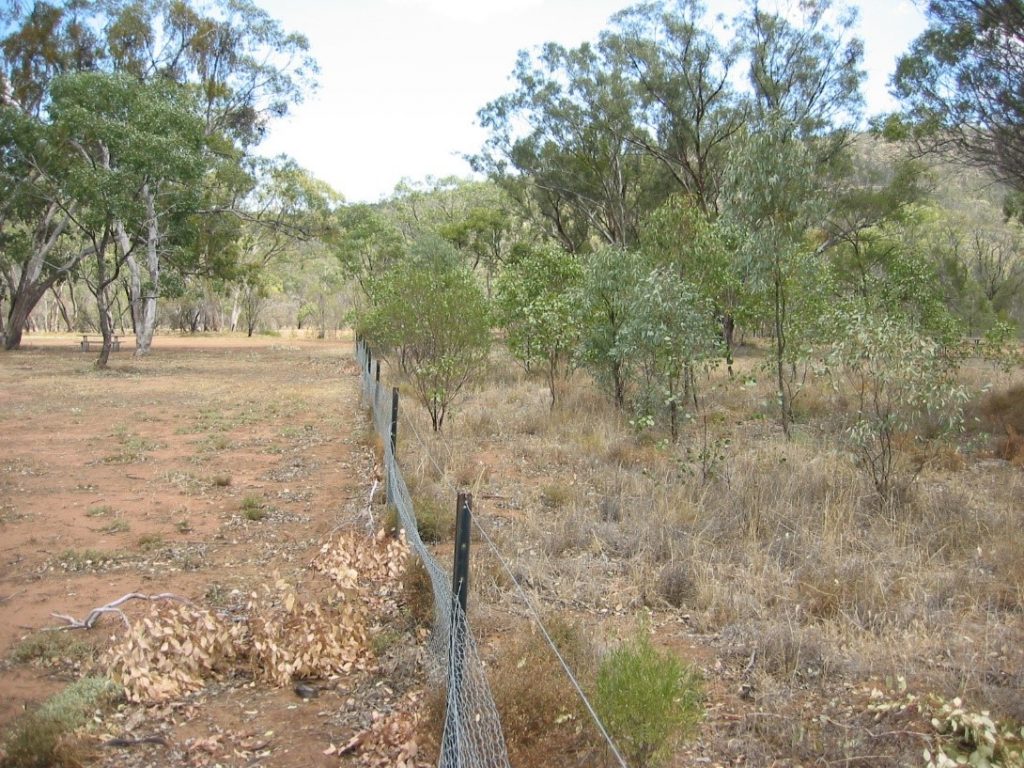We’re looking for enthusiastic students to work with our Arid Ecology Lab in 2020 for the following projects. Don’t hesitate to contact us if you are interested 🙂
Branching: can the addition of woody material help to revegetate degraded drylands?
Woody debris is recognised as an important structural element of the ground layer. The placing of logs or branches on the soil has been trialled as a method to stabilise degraded soil surfaces, by protecting plants from herbivory and allowing them to establish. A trial is being established in the Murray Mallee region of South Australia to examine the usefulness of ‘branching’ as a restoration tool.
This study will compare the effect of multiple branching treatments on soil accumulation and soil properties, herbivory of planted seedlings, and establishment of perennial vegetation within an existing experiment. An honours project would form part of a larger research project looking at the role of branching in restoring degraded landscapes. Students will be able to position their research within a broader context and work alongside collaborating scientists.
The work will be carried out near Renmark, South Australia and co-supervised by Dr Heather Neilly. For more information contact David Eldridge (d.eldridge@unsw.edu.au)

The effect of herbivory on the restoration of a semi-arid woodland
Vertebrate herbivores can threaten vegetation establishment and persistence in areas being managed for restoration. Various projects would investigate different aspects of how grazing by a range of herbivores (goats, rabbits and kangaroos) affect vegetation and soils in order to develop effective management of grazing. The work will be carried out near Renmark, South Australia and co-supervised by Dr Heather Neilly. For more information contact David Eldridge (d.eldridge@unsw.edu.au)

Long-term dynamics of vegetation cover under kangaroo grazing
Overgrazing by kangaroos has been identified as a major land degradation issue, particularly during droughts. This project will examine long-term data on the effects of kangaroos on vegetation species composition across a large number of sites, some of which are kangaroo free. The study will also incorporate measures of soil function at different parts of the landscape to determine the impacts of kangaroos on soil function. The work will be carried out at sites in eastern Australia in conjunction with the National Parks and Wildlife Service. For more information contact David Eldridge (d.eldridge@unsw.edu.au)
